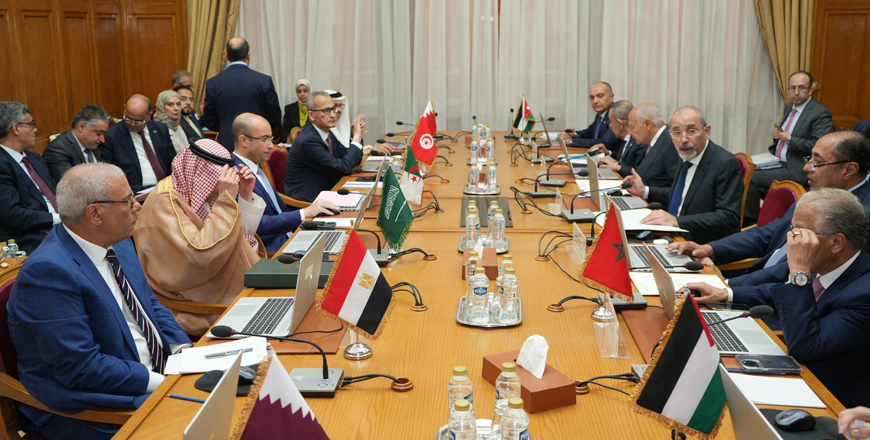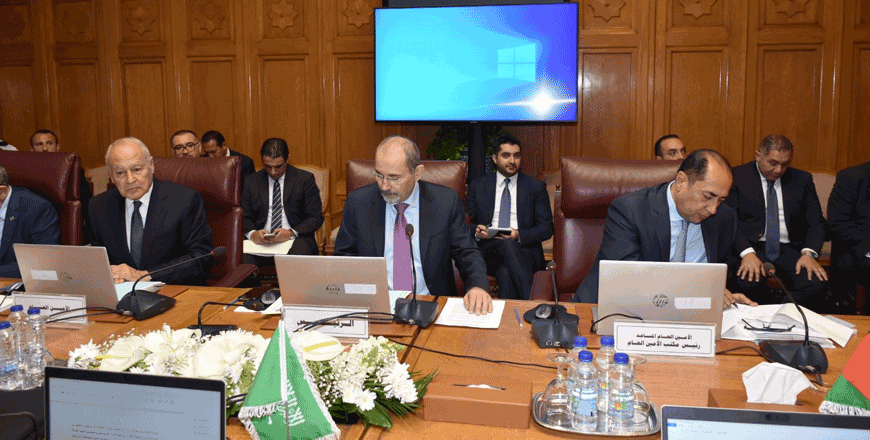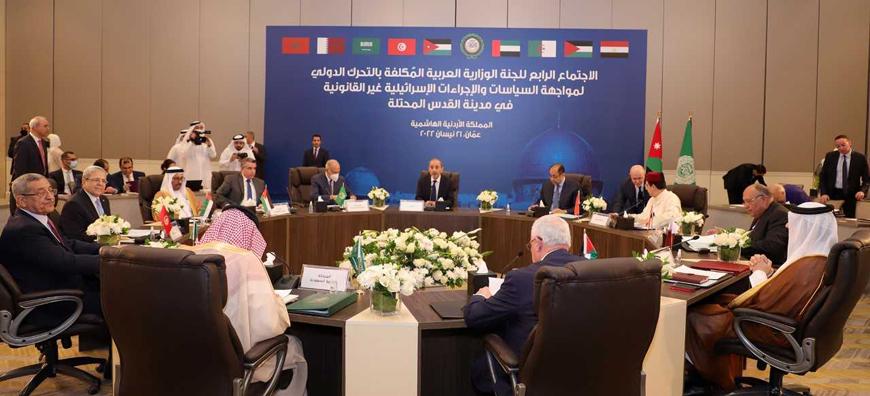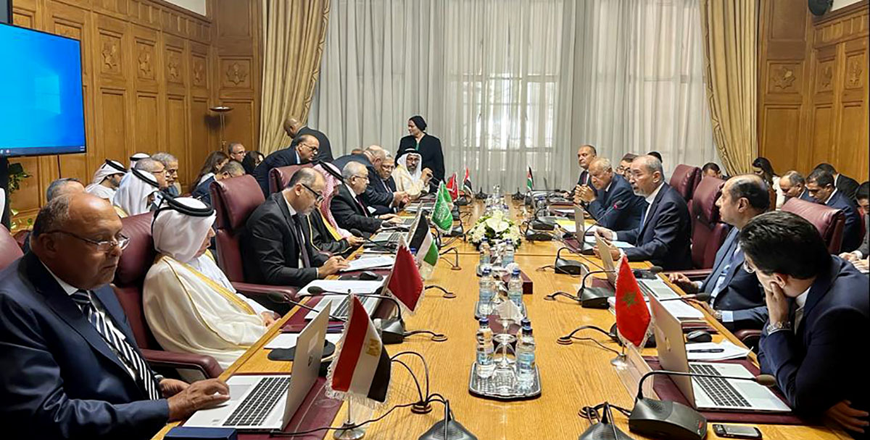You are here
Foreign minister chairs meeting to address illegal Israeli actions in Jerusalem
By JT - Apr 23,2025 - Last updated at Apr 23,2025

Deputy Prime Minister and Minister of Foreign Affairs Ayman Safadi on Wednesday chairs the ninth meeting of the Arab Ministerial Committee tasked with coordinating international efforts to confront Israel’s illegal actions in occupied Jerusalem (Petra photo)
AMMAN — Deputy Prime Minister and Minister of Foreign Affairs Ayman Safadi on Wednesday chaired the ninth meeting of the Arab Ministerial Committee tasked with coordinating international efforts to confront Israel’s illegal actions in occupied Jerusalem.
The meeting was held in Cairo on the sidelines of the 163rd regular session of the Arab League Council at the ministerial level, according to a Foreign Ministry statement.
The committee comprises representatives from Bahrain, the current chair of the Arab Summit, Palestine, Algeria, Saudi Arabia, Qatar, Egypt, Morocco, Tunisia, and the Secretary-General of the Arab League.
According to a statement issued following the meeting, the committee reviewed ongoing efforts to confront Israeli violations in occupied Jerusalem, particularly in and around Al Aqsa Mosque/Al Haram Al Sharif and the Sheikh Jarrah neighbourhood.
The session was convened under Decision No. 8660 of the Arab League Council, issued on May 11, 2021, during an extraordinary session addressing the situation in occupied Jerusalem.
The committee discussed mechanisms to confront Israel’s serious and systematic violations in the city and to develop a unified Arab strategy aimed at stopping these policies.
Safadi presented updates on Israeli actions since the committee’s previous meeting in September 2024, highlighting coordinated diplomatic efforts by member states to engage influential international actors and pressure Israel to end its violations.
The Palestinian Minister of State for Foreign Affairs briefed the committee on the humanitarian and political situation in the city, calling for intensified Arab and international efforts to end the occupation.
He cited ongoing home demolitions, attempts to erase cultural and historical identity, arbitrary arrests, including of children, and other violations of human rights.
Committee members also strongly condemned Israel’s continued breaches of international law, stressing that such actions fuel tensions and undermine the legal and historical identity of the city.
The ministers also reiterated their commitment to reinforcing Arab coordination to counter Israeli policies aimed at altering the legal status quo of Jerusalem and its holy sites.
They denounced the repeated incursions into Al Aqsa Mosque by Israeli ministers and extremist officials, warning that such provocations threaten the sanctity of the site.
They also condemned settler incursions carried out under the protection of Israeli occupation forces and restrictions imposed on Muslim worshippers, particularly during Ramadan.
Reaffirming that East Jerusalem is the capital of the State of Palestine, the ministers rejected any unilateral measures intended to alter Palestinian sovereignty over the city.
They stressed the need for a comprehensive peace based on international law, UN resolutions, and the Arab Peace Initiative. The meeting also underscored the importance of the historical Hashemite custodianship over Jerusalem’s Islamic and Christian holy sites in preserving the city’s religious identity and protecting its sanctities.
In their concluding remarks, the ministers condemned Israeli policies targeting the United Nations Relief and Works Agency for Palestine Refugees in the Near East (UNRWA), particularly decisions to shut down its centres in occupied Jerusalem, a move that directly impacts thousands of Palestinian refugees reliant on the agency’s services.
The committee also reaffirmed the urgent need to support all efforts aimed at protecting Jerusalem and its people from Israel’s continued violations.
Related Articles
AMMAN — Deputy Prime Minister and Foreign Affairs Minister Ayman Safadi on Wednesday in Cairo chaired the 6th meeting of the Arab Ministeria
AMMAN — Upon an invitation by Jordan, the Arab Ministerial Committee in charge of international action to confront illegal Israeli policies
AMMAN — Deputy Prime Minister and Foreign Minister Ayman Safadi on Tuesday chaired the fifth meeting of the Arab ministerial committee, whic














